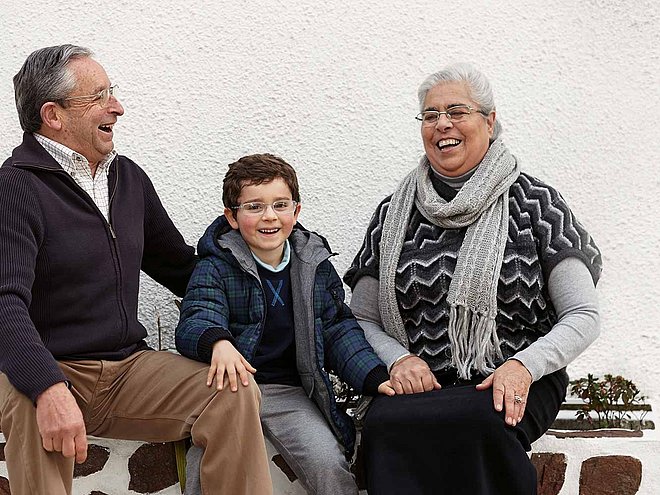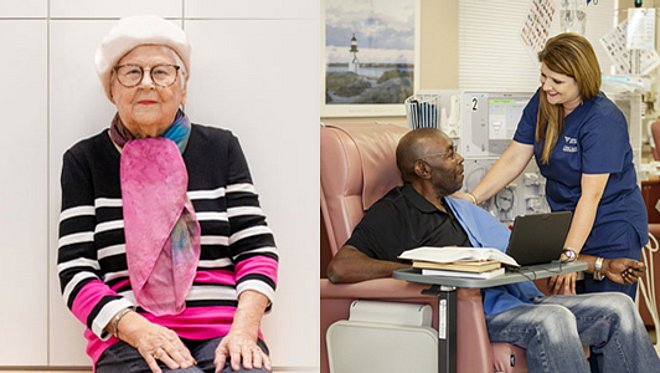Africa changing times
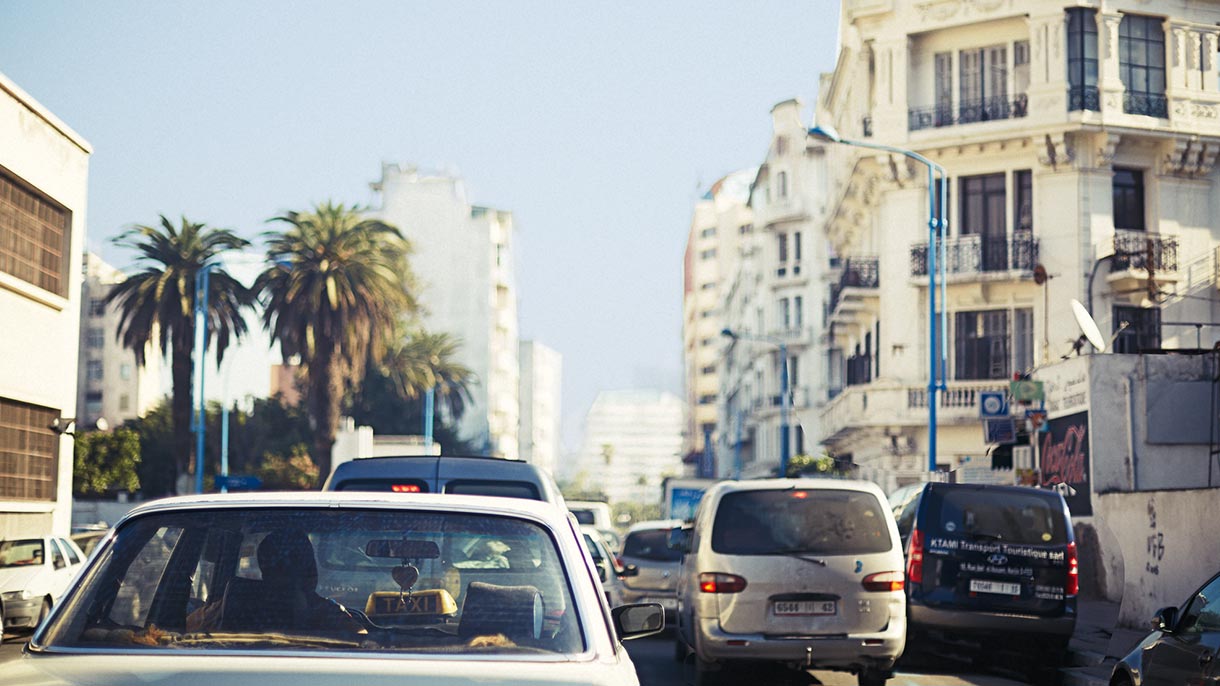
8:45 A.M.
Rush hour in Casablanca. Just getting to work is a test of patience for Redouane Belhaimeur. The 15-minute drive from his home through the morning traffic to the office can sometimes take up to an hour. Today, though, the congestion in the megacity by the sea is no worse than usual. “The traffic is really terrible”, sighs the marketing and sales manager of Fresenius Medical Care Morocco, weaving casually through the string of cars and trucks, whose drivers pay very little heed to lanes and signs.
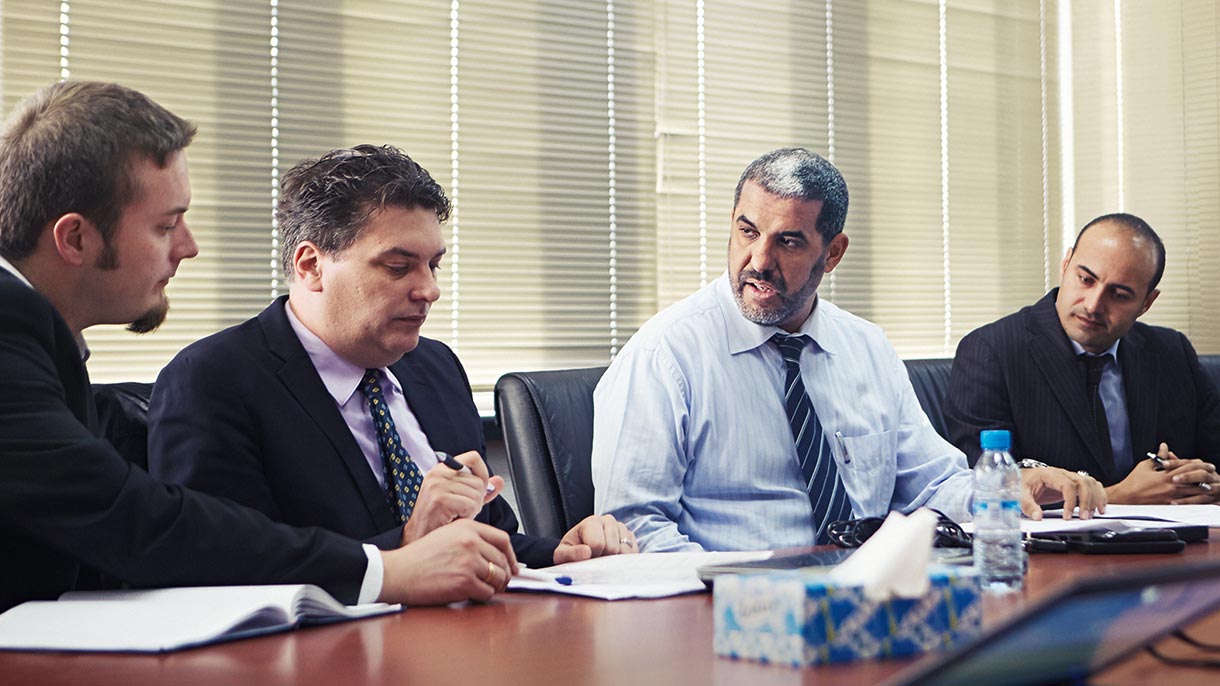
9:15 A.M.
The first meeting of the day. Application consultants have returned to report from Burkina Faso, one of the poorest parts of the sub-Sahara region, where they have been teaching nurses how to use dialyzers, among other jobs. A shortage of skilled staff is one of the biggest barriers to development in African healthcare systems. Of the 85 Fresenius Medical Care employees in Casablanca, twelve are in Belhaimeur’s team. Most of them are application consultants and sales specialists. They serve a market that covers around a quarter of the African continent in geographical terms, roughly equivalent to the size of Western Europe.
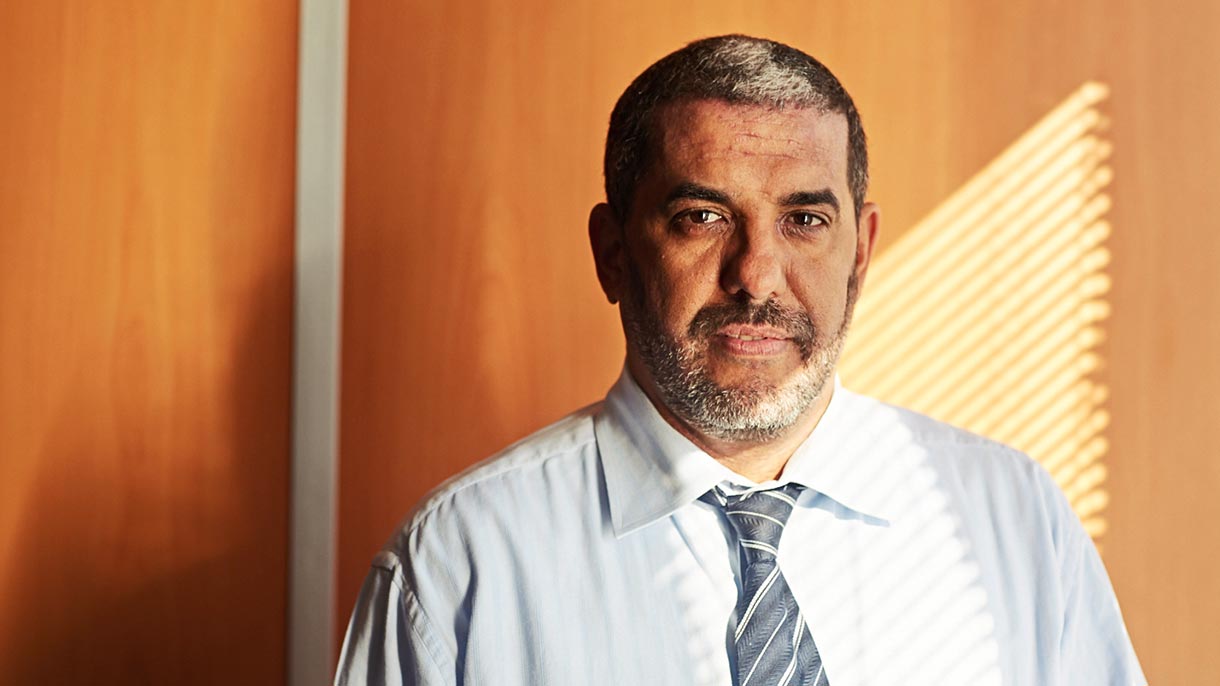
10:45 A.M.
Redouane Belhaimeur has closed his office door. As marketing and sales manager, his job involves coordinating lots of new projects as well as employees, and that can only be done in the office. He used to work from home occasionally if he had to develop important concepts, but since Fresenius Medical Care Morocco was merged with the Central and West Africa regional office – also located in Morocco – in 2012, his work routine has changed. “This merger was very important to take into account the new situation”, explains Belhaimeur. One factor contributing to this “new situation” is the huge economic upturn in North and West Africa which is reflected in the development of the healthcare system. Between 2005 and 2010, Fresenius Medical Care’s revenue in the region increased fivefold. Most nations are investing in their medical infrastructure, even during political crises. In Morocco itself, the healthcare system is currently being reformed. For Fresenius Medical Care’s production site in Morocco, this means regularly expanding its production volume and even providing a wide range of export services.
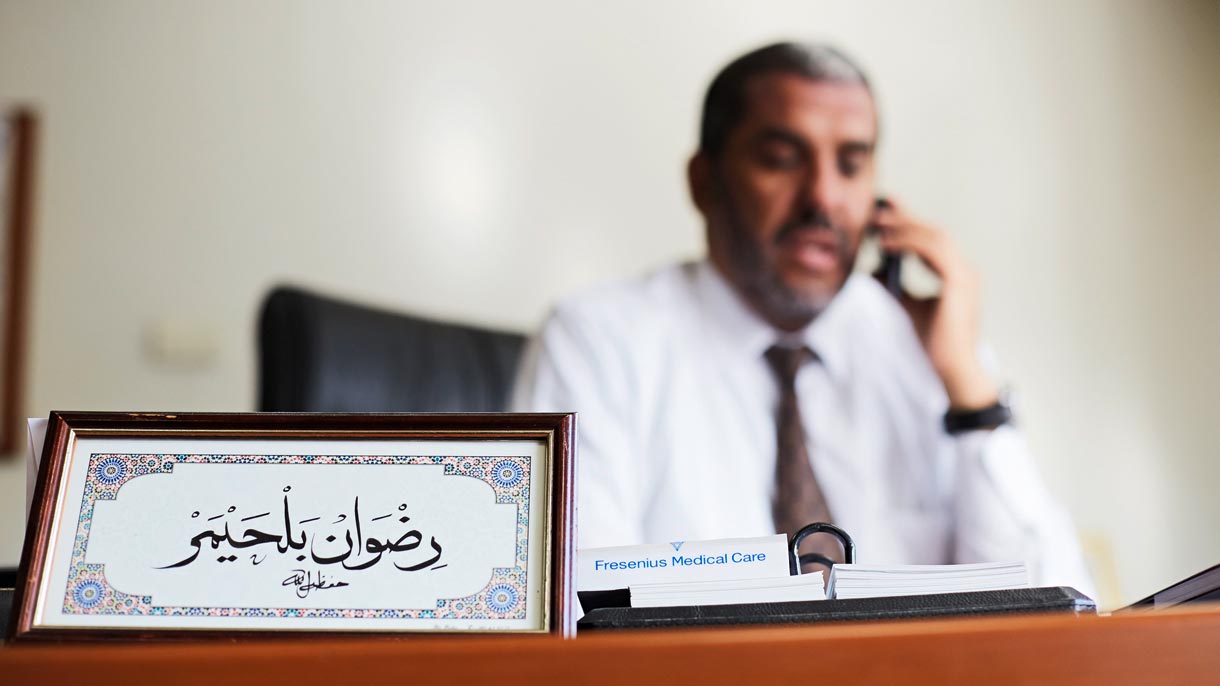
11:30 A.M.
Redouane Belhaimeur is on the telephone, discussing the current status of a project in Senegal with customers. “I know all of the most important customers personally”, he states. “I used to spend at least three months a year out and about in North and West Africa. Although my employees do that now, I’m obviously still in touch with many contacts from that time.”
IN THE MORNING
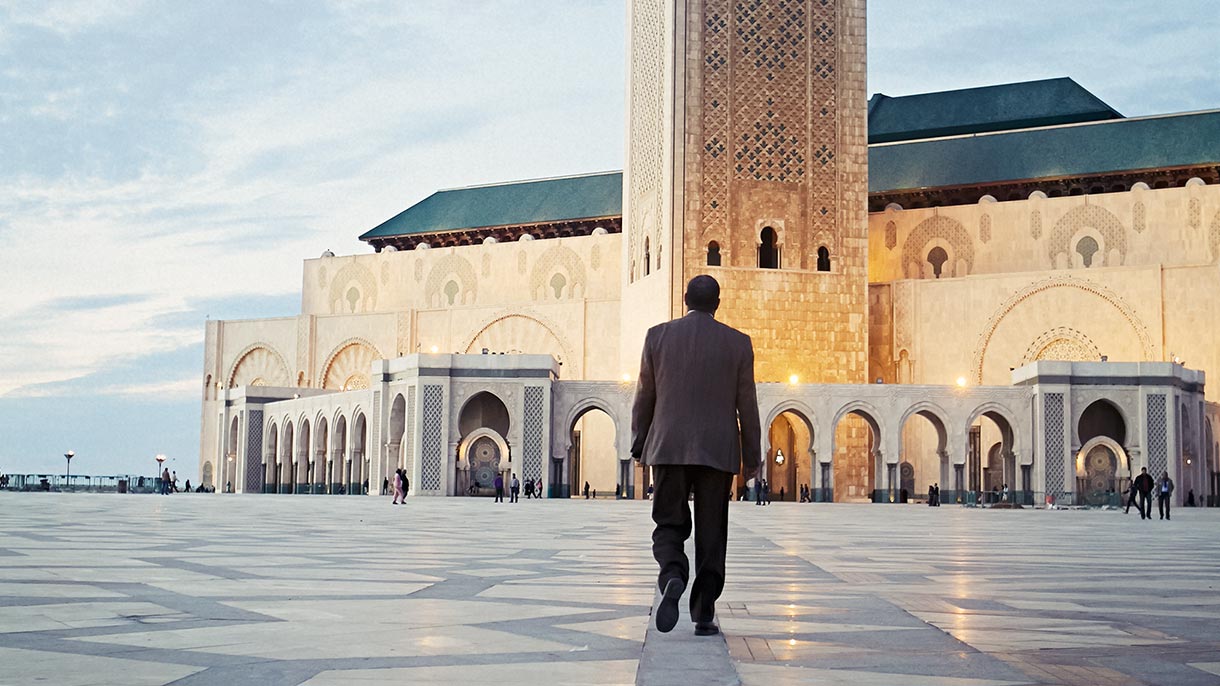
12:30 P.M.
On the way to an appointment, Redouane Belhaimeur uses his lunch break to visit the Hassan II Mosque. The city’s largest mosque boasts the world’s tallest minaret, soaring 210 meters high. “For me, prayers are an important part of the day, a kind of short meditation”, says Belhaimeur.
In the Arab world, it is normal to break off meetings for a short while to pray. “This can be very practical”, notes the marketing specialist, who has already completed the pilgrimage to Mecca twice: “I often come up with surprising solutions and good ideas after these breaks.”
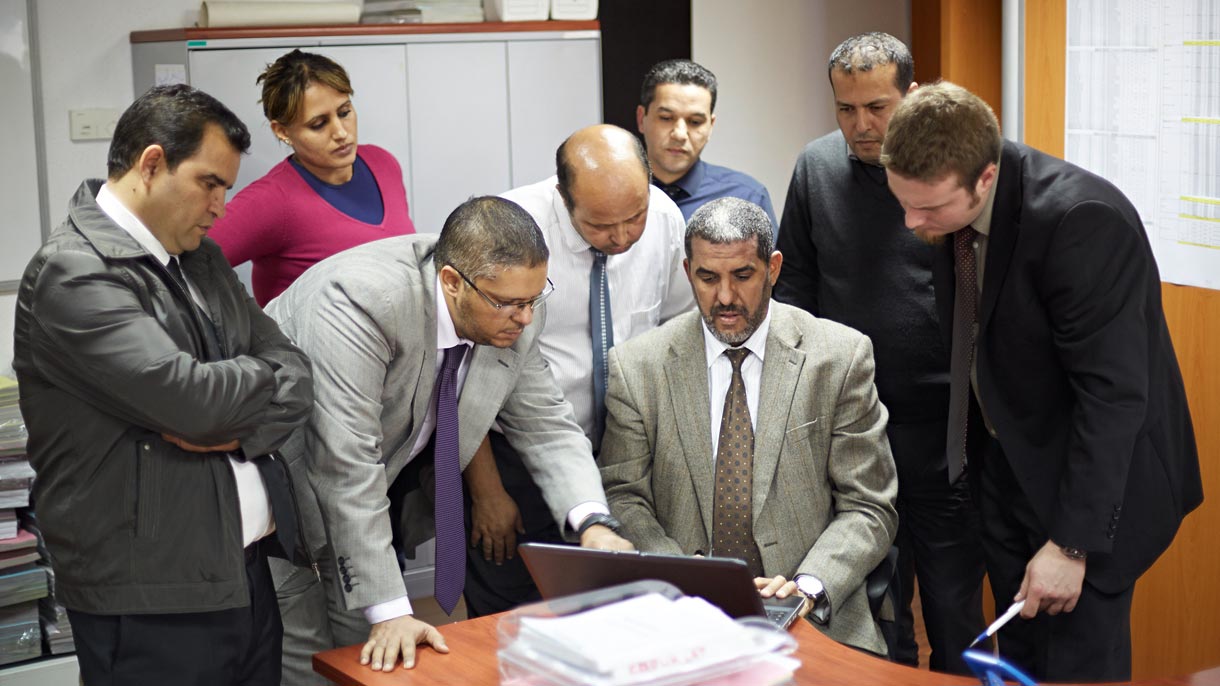
3:30 P.M.
Slowly but surely, North and West Africa is emerging from its slumber as a remote niche market. Consequently, Fresenius Medical Care is also stepping up its activities in the region. This is reflected in the new structure of the Moroccan office, bringing Casablanca closer to the Company’s headquarters in Bad Homburg, Germany. The tasks at hand are dealt with by a management team of German and Moroccan employees. Mario Graser, regional manager for North and West Africa, who is based at Group headquarters in Bad Homburg, therefore travels to Casablanca regularly. “We are the market leader in the region because we have been doing development work there for a long time. But now that the market is opening up, other companies are obviously moving in, too”, he says, describing the strategic challenge in the years to come. At his meetings with Redouane Belhaimeur and the other managers at the office, he therefore deals with medium-term prospects as well as tackling immediate tasks.
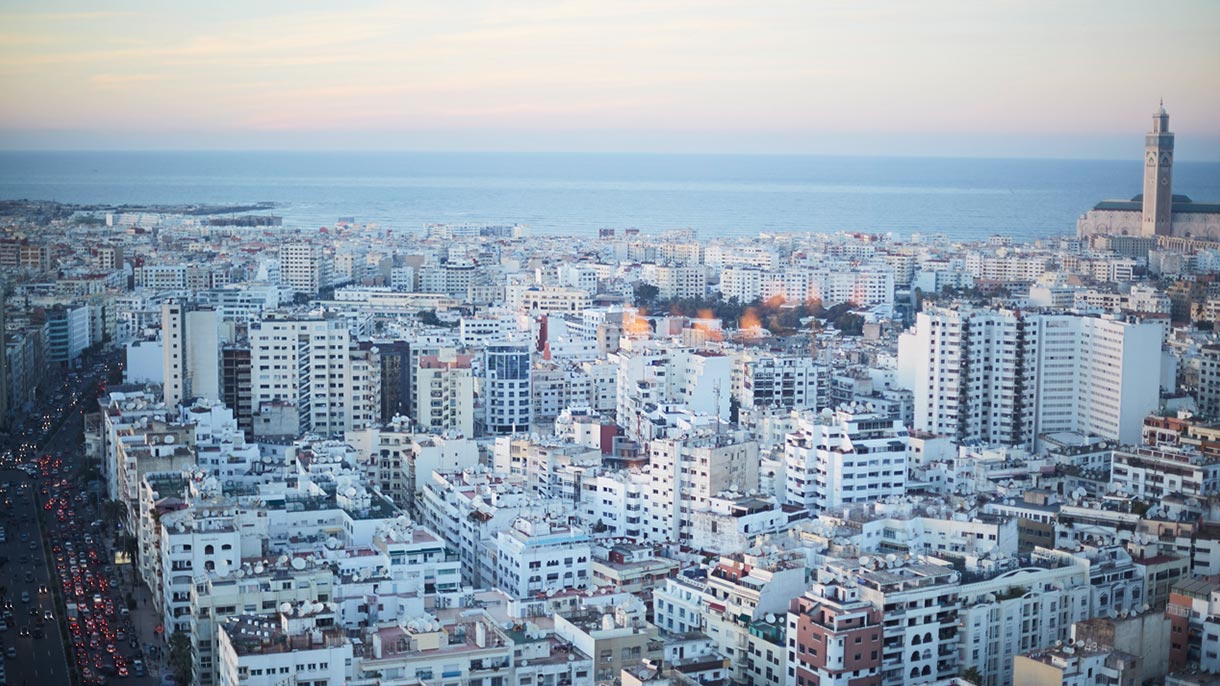
5:30 P.M.
“I sometimes miss traveling,” Redouane Belhaimeur admits: “After all, I spent 20 years on the road, and got to know lots of people I would like to see again.” But the family man also loves spending time after work with his wife and four children or catching up with his friends over a game of pétanque – a variant of boules that is very popular in Morocco. He is happy to give up the taxing trips to far-flung places for this. And he even calmly accepts the evening traffic in Casablanca.
